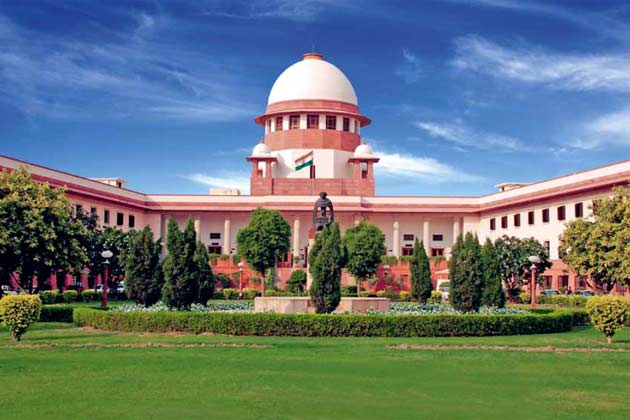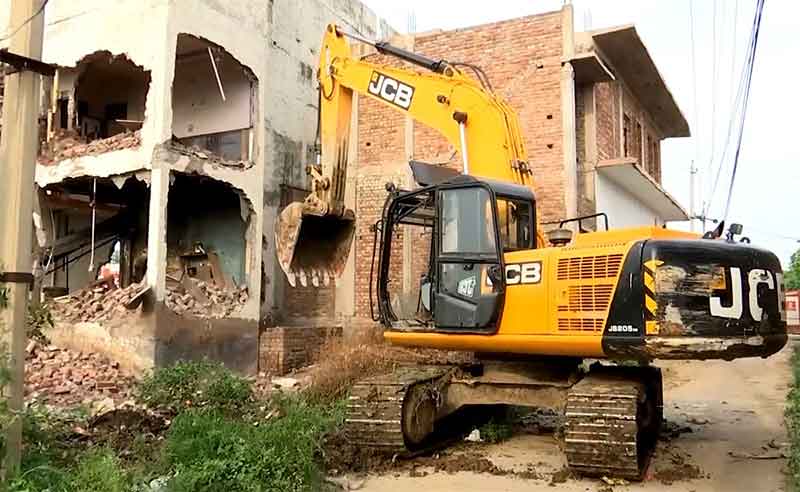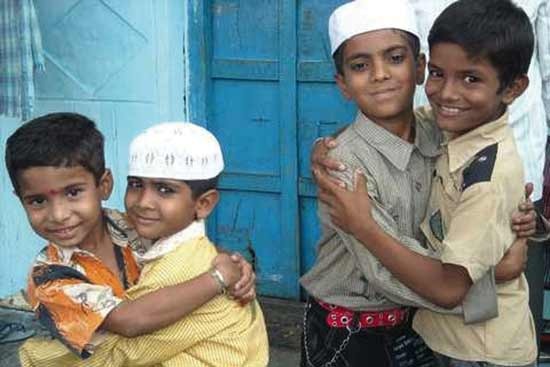
In a historic ruling, Justice Madan B. Lokur and Justice U.U.Lalit of the Hon’ble Supreme Court have spoken out in favour of democracy. The judgment came on a plea by hundreds of families in the north-eastern State of Manipur for a probe by a Special Investigation Team into 1,528 cases of alleged fake encounters involving the Army and the police.
In particular, by saying: “It does not matter whether the victim was a common person or a militant or a terrorist, nor does it matter whether the aggressor was a common person or the state. The law is the same for both and is equally applicable to both…This is the requirement of a democracy and the requirement of preservation of the rule of law and the preservation of individual liberties”, the Hon’ble Supreme Court took a step in the direction of equality before the law, and reaffirmed Article 21 that no person shall be deprived of his life or personal liberty except according to procedure established by law.
The judgment has been welcomed especially among people in the “disturbed areas” of our northeastern states and Kashmir, and is surely in partial vindication of Irom Sharmila’s principled, 12-years-long on-going fast demanding repeal of AFSPA.
This writer, with his Army background, is the first to point out that no soldier (the term refers to all ranks of the Armed Forces – Army, Navy and Air Force) will defend wrong doing of any sort, leave alone heinous crimes like murder and rape, by another soldier whether he is “on-duty” or “off-duty”. The reason is not merely that such should be the attitude of any good citizen, but because a known offender in the team is a threat to the coherence, man-to-man trust and fighting efficiency of the military team, and to the survival of the individual soldier in high-risk situations, at all levels from the section, platoon, company and battalion upto the highest formations.
The Hon’ble Supreme Court’s ruling will not find dissonance within the Armed Forces (hereinafter Army, for short). However, without in any manner questioning the wholly welcome order of the Hon’ble Supreme Court and with all due respect and humility, this writer would like to make some points on the larger issue of AFSPA and deployment of the Army on internal security (IS) duties.
Disempowerment of the soldier
The plea by the families of Manipur concerns alleged fake encounters involving both the Army and the police. While a faked encounter is reprehensible, a murder is a murder and a rape is a rape, it is necessary to examine the differences between the Army soldier and the armed policeman, and see why the Army and the AFSPA take a beating.
Under Article 246 of the Constitution, Parliament makes laws concerning the deployment of the Armed Forces “in aid of the civil power”, prescribing the powers, jurisdiction, privileges and liabilities of soldiers during deployment. The Armed Forces (Special Powers) Act, 1958 (AFSPA) is one such law. Others are, the Army Act 1950, the Navy Act 1957 and the Air Force Act 1950, and associated Rules and Regulations, to administer military law to all ranks of the three Armed Forces.
These laws abrogate a soldier’s constitutional rights under Art.19(1)(a), (b) and (c), of freedom of speech and expression to communicate with the media, freedom of assembly, or the right to form or be members of associations or unions for collective bargaining. Besides this, the Army Act (AA, for short) and the Acts for the Navy and Air Force are strict by any standards, and in fact their “excessive” strictness has been commented upon in legal circles. Thus, because of the nature of duties performed by them and the strict laws in force for maintenance of strict discipline among them, soldiers are by law, uniquely disempowered citizens. This is not the case with members of the bureaucracy, state policemen or armed policemen (CAPFs), on whom restrictions by law and administrative rules are far less stringent. This (necessary) disempowerment is a stumbling block for the Army when called in aid of the civil power. The reasons are discussed hereunder.
Government can function in the interest of people when there is peace and order in society, functionaries in power use people-oriented politics, and the rule of law prevails among all sections of society. Providing security and public order by fair and just enforcement of extant laws, and maintenance of supplies and services essential to the public, is the primary task of governance by the civil administration, which is the combination of the powers, roles and functions of people’s elected representatives, bureaucrats and integral police forces.
Disturbance of law and order usually happens because of conflict of interests within civil society, caused by inappropriate laws and/or unfair policies and/or poor or ill-motivated implementation – in short, mal-administration or mis-governance. When law and order, and peace in society is disturbed and is beyond political resolution, governance calls for using the force of the state and/or central police (CAPFs). When law and order cannot be restored despite deploying state and central police or because of their misuse, it can only be restored by deployment of the Armed Forces (Army) on IS duties in aid of the civil power as permitted by the Constitution. Government has no other option; the Army is its instrument of last resort.
When government calls the army for IS duties as for example, to quell rioting, the army may confront a violent mob. The army officer commanding the sub-unit is obliged to take the written permission of a magistrate who accompanies the sub-unit, before opening fire if the situation so warrants according to the discretion of the magistrate, because the soldier cannot use firearms against civilians without permission from civil authority. But when law and order breaks down in a large area, government cannot provide magistrates to day-and-night accompany every army sub-unit, and it therefore empowers the Army to handle such situations by means of AFSPA.
The AFSPA
The AFSPA is an enabling legislation. It legitimises deployment of the Army in large areas which the civil administration may notify as “disturbed areas”. AFSPA is applicable only to the Armed Forces (under the Ministry of Defence), and not to CAPFs or state police forces under central or state Ministries of Home Affairs respectively. The Constitution of India makes a distinction between “the members of the Armed Forces” (Art.33(a)) meaning soldiers, and “members of the Forces charged with the maintenance of public order” (Art.33(b)) meaning police personnel. Thus the term “Armed Forces” (proper noun) should not be applied to just any body of uniformed persons bearing firearms such as police or CAPFs who may be authorized and trained to use firearms, but only to the soldiers of India’s military. But, often unable to distinguish between the Army and civilian forces that bear arms, media persons often use the catch-all term “security forces” or “armed forces” (common noun) to include the military, CAPFs and state police.
The confusion is exacerbated because CAPFs and police forces wear camouflage uniforms that are virtually indistinguishable from Army uniforms. In tense situations where a journalist takes risks, it can be risky for him/her, and even more so for any member of the public, to ask an armed man to which force he belongs. Thus often enough, the media and the public straightaway blame the Army for incidents involving CAPFs or police, because of AFSPA being in force. Even if subsequent inquiry by civilian authority in a particular case finds that the Army was not involved, the negative “Army-AFSPA” image persists in public opinion.
According to AA Sec.69 “Civil offences” and AA Sec.70 “Civil offence not triable by court-martial” read together, a soldier who commits rape, murder or culpable homicide not amounting to murder of a civilian, will not be tried by a court-martial unless he is on active service, or at any place outside India, or at a frontier post. In any case, AFSPA being in force is not the cause for his committing crime, and cannot be viewed as a facilitator for crime. But repealing AFSPA would cause AA Sec.70 to become inapplicable, making the soldier liable for trial by criminal law – and this is really the cause for the public demand to repeal AFSPA.
AFSPA Sec.3 confers upon a state or central government, powers to declare the whole or some part of the state as a “disturbed area” … “in such a disturbed or dangerous condition that the use of Armed Forces in aid of the civil power is necessary”, by issuing a notification to that effect. The assessment of the condition of society and the discretion to notify it as “disturbed” is the sole prerogative of government. The Armed Forces have no role in this whatsoever. AFSPA Sec.4 confers special powers upon members of the Armed Forces in the notified disturbed areas to arrest, enter and search, or open fire.
Demand for repeal of AFSPA
Notwithstanding the constitutionally permissible last-resort necessity of using military force for internal security when the political-administrative tools of governance fail, there is little justification for an elected government to use even police force for day-to-day governance continuously over decades.
People in our northeastern states and Kashmir, for decades trapped in the crossfire between government police and military forces on the one hand, and the bullets, grenades and IEDs of militants on the other, want nothing more than peace and democratic freedoms. Irom Sharmila, a national icon of courageous non-violence, who has been on fast for 12 long years demanding repeal of AFSPA, stated it squarely and unequivocally in 2013: “I am against a government that uses violence as a means to govern”. [Jiby Kattakayam; “I am against a government that uses violence to govern”; The Hindu, March 5, 2013].
She goes further to say that “the government and the army are colluding to cheat the people” . Her stating that the people are being cheated of peace, social order and meaningful development is understandable and correct. But her accusation of army’s colluding with government, suggesting that the army has an institutional interest or stake in IS deployment, is unfounded. It bears repetition that the army comes out of barracks at the specific call of government and not of its own accord. Therefore, “cheat the people” refers to government cheating the people through abject failure of the politics of development, and monumental political-bureaucratic corruption of ideology and principles. Decades-long continuous violence through the instrumentality of police and military for governance is antithetical to peace and social order essential for development of the sort that people crave for and need. This legitimate craving of the people is reflected in their demand for repeal of AFSPA.
Continuous use of AFSPA
Hearing several petitions challenging the constitutional validity of AFSPA, the Supreme Court ruled in 1997 [Naga People’s Movement of Human Rights v Union of India [1997] ICHRL 117 (27.11.1997)] that the powers given to the army by AFSPA were not arbitrary or unreasonable and did not violate constitutional provisions. However, the Supreme Court went further to rule that (#) declaration of an area as disturbed should be reviewed every six months, (#) central government sanction or refusal to prosecute army personnel should be accompanied by reasons in writing, and (#) army personnel operating under AFSPA would do so under legally binding safeguards or guidelines in the form of a comprehensive list of DOs and DONTs before, during and after operations, in dealing with civil courts, and when providing aid to civil authority. [Note below].
The restriction that government should review the declaration every six months is cosmetic, since it merely calls for bi-annual bureaucratic paperwork. It has not prevented governments from maintaining entire states as disturbed areas continuously for decades. To limit army deployment on IS duties, the continuity of AFSPA needs to be broken. This writer suggests amendment by inserting a final sentence in AFSPA Sec.3 as follows: “Provided that the Governor of the State or the Administrator of the Union Territory or the Central government shall not declare an area as disturbed for more than an aggregate of 90 days in any calendar year.” The period (of 90 days or less or more) suggested can be finalized after wide public discussion and cross-party consultation.
End note
The use of the military in aid of the civil power is an option that no government, howsoever liberal, will discard especially since it has constitutional sanction. The military on IS duties is to civil society what an ICU is to a critically ill person. A patient cannot remain for years in a hospital ICU, because he/she would be effectively dead. The patient needs treatment for the disease and right nutrition to regain normal health. Likewise, the military remaining deployed on IS duties over decades makes civic life in society effectively dead, without assuring peace or security. India’s societies need the “treatment” of honest political effort by transparent dialogue and engagement with people, and “nutrition” of good governance for their growth. Society does not need the army, except to guard the country’s borders against external aggression and protect its sovereignty and territorial integrity.
While no government may ever propose to Parliament to repeal AFSPA, it would certainly be open to amending it. An amendment to cap the applicability of AFSPA to a total of say, 90 days in any calendar year, will allow governments to retain their (albeit undoubtedly coercive but unavoidable) option of military deployment when civil administration fails to maintain law and order. This will make governments accountable to the people, to rediscover ways of providing a deeply troubled society with honest politics and good governance. It will also enable the Army, one-third of which is engaged in IS duties, to focus more on securing India’s borders.
Major General S.G. Vombatkere, VSM, retired in 1996 as Additional DG Discipline & Vigilance in Army HQ AG’s Branch. He is a member of the National Alliance of People’s Movements (NAPM) and People’s Union for Civil Liberties (PUCL). With over 490 published papers in national and international journals and seminars, his current area of interest is strategic and development-related issues. E-mail: <[email protected]>
Note. List of DOs & DONTs as directed by the Supreme Court in NPMHR v. India in 1997, that are legally binding
DOs
1. Action before Operation
(a) Act only in the area declared ‘Disturbed Area’ under Section 3 of the Act
(b) Power to open fire using force or arrest is to be exercised under this Act only by an officer/JCO/WO and NCO
(c) Before launching any raid/search, definite information about the activity to be obtained from the local civil authorities
(d) As far as possible coopt representative of local civil administration during the raid.
2. Action during Operation
(a) In case of necessity of opening fire and using any force against the suspect or any person acting in contravention of law and order, ascertain first that it is essential for maintenance of public order. Open fire only after due warning
(b) Arrest only those who have committed cognizable offence or who are about to Commit cognizable offence or against whom a reasonable ground exists to prove that they have committed or are about to commit cognizable offence
(c) Ensure that troops under command do not harass innocent people, destroy property of the public or unnecessarily enter into the house/dwelling of people not connected with any unlawful activities
(d) Ensure that women are not searched/arrested without the presence of female police. In fact women should be searched by female police only
3. Action after Operation
(a) After arrest prepare a list of the persons so arrested
(b) Hand over the arrested persons to the nearest police station with least possible delay
(c) While handing over to the police a report should accompany with detailed circumstances occasioning the arrest
(d) Every delay in handing over the suspects to the police must be justified and should be reasonable depending upon the place, time of arrest and the terrain in which such person has been arrested. Least possible delay may be 2-3 hours extendable to 24 hours or so depending upon a particular case
(e) After raid make out a list of all arms, ammunition or any other incriminating material/document taken into possession.
(f) All such arms, ammunition, stores etc. should be handed over to the police station along with the seizure memo
(g) Obtain receipt of persons and arms/ammunition, stores etc. so handed over to the police
(h) Make record of the area where operation is launched having the date and time and the persons participating in such raid
(i) Make a record of the commander and other officers/JCOs/NCOs forming part of such force
(k) Ensure medical relief to any person injured during the encounter, if any person dies in the encounter his dead body be handed over immediately to the police along with the details leading to such death
4. Dealing with civil court
(a) Directions of the High Court/Supreme Court should be promptly attended to
(b) Whenever summoned by the courts, decorum of the court must be maintained and proper respect paid
(c) Answer questions of the court politely and with dignity
(d) Maintain detailed record of the entire operation correctly and explicitly.
DONTs
1. Do not keep a person under custody for any period longer than the bare necessity for handing over to the nearest police station
2. Do not use any force after having arrested a person except when he is trying to escape
3. Do not use third-degree methods to extract information or to a extract confession or other involvement in unlawful activities
4. After arrest of a person by the member of the armed forces, he shall not be interrogated by the member of the armed force
5. Do not release the person directly after apprehending on your own. If any person is to be released, he must be released through civil authorities
6. Do not tamper with official records
7. The armed forces shall not take back a person after he is handed over to civil police.
List of DOs and DONTs while providing aid to civil authority
DOs
1. Act in closest possible communication with civil authorities throughout
2. Maintain inter-communication if possible by telephone/radio
3. Get the permission/requisition from the Magistrate when present
4. Use little force and do as little injury to person and property as may be consistent with attainment of objective in view
5. In case you decide to open fire
(a) Give warning in local language that fire will be effective
(b) Attract attention before firing by bugle or other means
(c) Distribute your men in fire units with specified Commanders
(d) Control fire by issuing personal orders
(e) Note number of rounds fired
(f) Aim at the front of crowd actually rioting or inciting to riot or at conspicuous ringleaders, i.e., do not fire into the thick of the crowd at the back
(g) Aim low and shoot for effect
(h) Keep Light Machine Gun and Medium Gun in reserve
(i) Cease firing immediately once the object has been attained
(j) Take immediate steps to secure wounded
6. Maintain cordial relations with civilian authorities and paramilitary forces
7. Ensure high standard of discipline
DONTs
8. Do not use excessive force
9. Do not get involved in hand-to-hand struggle with the mob
10. Do not ill-treat anyone, in particular, women and children
11. No harassment of civilians
12. No torture
13. No communal bias while dealing with civilians
14. No meddling in civilian administration affairs
15. No Military disgrace by loss/surrender of weapons
16. Do not accept presents, donations and rewards
17. Avoid indiscriminate firing.
Source: Naga People’s Movement of Human Rights v Union of India [1997] ICHRL 117 (27.11.1997).
















































